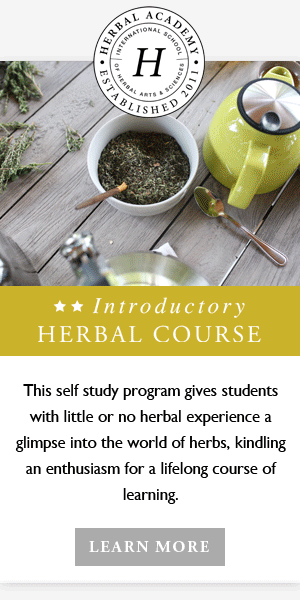
Stress Management For Parents: 3 Ways To Deeply Care For Yourself
“Self-care is never a selfish act – it is simply good stewardship of the only gift I have, the gift I was put on earth to offer to others. Anytime we can listen to the true self and give it the care it requires, we do not only for ourselves but for the many others whose lives we touch.”
– Parker Palmer
Let’s face it, parenting can be hectic and stressful. The daily challenges of taking care of little people combined with jobs, household chores, family pressures, and more can be completely overwhelming at times. As parents our own needs often get lost in the shuffle. We may feel we don’t have the time to care for ourselves, and we may even feel guilty when we do take time for self-care. Yet, the saying “if momma ain’t happy, ain’t nobody’s happy” holds true! Lack of supportive stress management for parents can lead to consequences for children: “Parents in distress are less affectionate and nurturing, and increasingly harsh, irritable, and inconsistent when dealing with their children” (Tubbs, 2013). Not to mention personal consequences for parents such as depression, anxiety, insomnia, frequent colds and flus as well as setting the stage for more serious chronic disease. Clearly finding ways to tend for our own needs and fill ourselves up is essential.
Good nutrition, exercise, and stress management are all extremely important self-care basics for any parent to be healthy and happy. Beyond these basics is the importance of nurturing the deep self, caring for the you who was there before you became a parent, and continuing to grow that part of yourself. We mothers (and fathers) are more than just parents; we are multi-dimensional people and all the parts of us need to be tended for us to be healthy. “We have to be whole ourselves, each his or her own person, with a life of our own, so that when [our children] look at us, they will be able to see our wholeness against the sky.” (Kabat-Zinn, 1998)
Cultivate Space
Do you have a space in your life that is all your own? A place where you can deeply reconnect with yourself? It is no secret that children are demanding. Kids are so filled up with love and desire for us parents that they will follow us anywhere and everywhere, so we may find that we have to carve out some space to just be for a while. A space to nourish and replenish our own self, internally as well as externally.
The ways I create space for myself change as my children grow. At first it was just a simple cup of tea at the kitchen table each morning while my child napped nearby. I would sit and breathe deep while holding my cup and look out the window at the big beautiful mountain across the valley from our home. By the time I reached the bottom of my teacup, I would have a greater sense of calm and the rest of the day was easier. Then as my child grew, I would put her in the stroller and walk for as long as I could just letting the world fill us up. Nowadays I find my refuge in the bathtub with lots of salty, fragrant water and a lovely book.
How you replenish yourself will depend on you and what you find nourishing. Perhaps it is just a few moments of calm breathing each morning before you head off about your day. Or maybe you like to hike, write, or garden. Whatever it is, find it and claim it as best you can. Try and visit there each day even if it is just for a few minutes. Here are some lovely parent-tested ideas for deep replenishment:
- Enjoy the moment: relaxing on the porch, reading, writing, gardening and listening to music
- Connecting deeply with the self: meditation, mantra, nourishing appreciation and practicing mindfulness
- Exercise: early morning workouts, yoga, walking, hiking and dancing
- Help from the plant world: rejuvenating essential oils, relaxing herb teas, and eating nourishing foods
- Body care: long baths, showers, sauna, massages and other bodywork
- Connecting with the Earth: going outside into the garden for a break and putting bare feet on the Earth
- Spend time with friends, travel and adventure
Practice Gratitude
Each breath we take is a gift, breathing in and breathing out. Every morning when we wake, we are given a gift – another day to be alive! Appreciating the little things can have a big effect on our lives. In fact, recent studies have found that cultivating gratitude really does have an impact on our emotions and well-being. Participants engaged in actively working on gratitude are 25% happier, exercise more, and have less physical complaints. Findings suggest that gratitude may even have a positive effect on heart health and increase longevity (Justice, 2007).
So what does this mean for parents? As a form of stress management for parents, practicing gratitude and noticing all the wonderful things in your life may help you to fill your cup, however empty it may be. It may also help you to be a happier parent and enjoy engaging with your children more. Here are some great ways to practice gratitude:
- Take time to savor the moment. When you first awake in the morning give thanks for the start of another beautiful day. Savor the lovely taste of your food. Enjoy watching a smile play across the face of your child. Go outside once a day and just breathe for a few moments.
- Keep a gratitude journal and write in it once a day. You can simply write down a few of the wonderful things from your life each day. Or maybe take it further and spend five to ten minutes each day writing about all the beauty in your life.
- Appreciate your child. Strive to look for the positive in your child. Children are often infused with joy and if we get caught up in the struggles we are having with them, it is all too easy to overlook how amazing they are. Watch your child use their body to experience the world. Listen for the wise and funny things they will inevitably say. Try to catch them being good and appreciate them for it!
- Appreciate yourself. You are amazing. You are doing such a good job as a parent and as a person. Find and appreciate at least one wonderful thing you did everyday. Did you feed your child breakfast? Did you give them a hug or an encouraging word? Did you do anything to take care of yourself such as a walk or brush your teeth, even? These little things are important and you make them happen! Appreciate that!
Let Go Of Perfect
I am not perfect and neither are you. Wouldn’t life be boring if we were all perfect? When we make mistakes, we learn and grow. However painful it may be to make mistakes with our kids, it is going to happen. And attempting to keep everything running absolutely smoothly in today’s world is enough to stress anyone out. From making healthy meals and providing nourishing activities for the family to excelling at work and keeping the house tidy, it can all become overwhelming very quickly. Trying to be perfect puts an enormous amount of pressure on not only yourself, but also everyone around you.
So step back, take a big breath and let yourself relax. Forgive the mistakes you make and do your best to learn from them when appropriate. Let go of expectations and just be present in the moment. Enjoy being you and knowing that you are giving your child the best gift you can, which is really you, just the way you are!
“It’s not only children who grow. Parents do too. As much as we watch to see what our children do with their lives, they are watching us to see what we do with ours. I can’t tell my children to reach for the sun. All I can do is reach for it, myself.”
– Joyce Maynard
Just as with a child, when we take care of ourselves, we will feel better. What’s more, when we tend to ourselves deeply we have the chance to grow into who we truly are. Through this growth we can find a sense of peace and meaning. Take the time to cultivate a little space for yourself and practice gratitude. Give yourself a break and accept imperfection. You will feel so much better!
REFERENCES
Justice, Blair and Rita, Drs. (2007). Grateful-ology: Science And Research On Gratitude. Retrieved from https://www.uthealthleader.org/story/grateful-ology
Kabat-Zinn, Jon & Myla. (1998). Everyday Blessings: The Inner Work of Mindful Parenting. New York: Hachette Book Group.
Palmer, Parker. (1999). Let Your Life Speak: Listening For The Voice Of Vocation. California: Jossey-Base. Tubbs, Carly, and Aber, Lawrence. (2013).
Cascading Effects Of Parental Stress. Retrieved from http://prospect.org/article/cascading-effects-parental-stress









